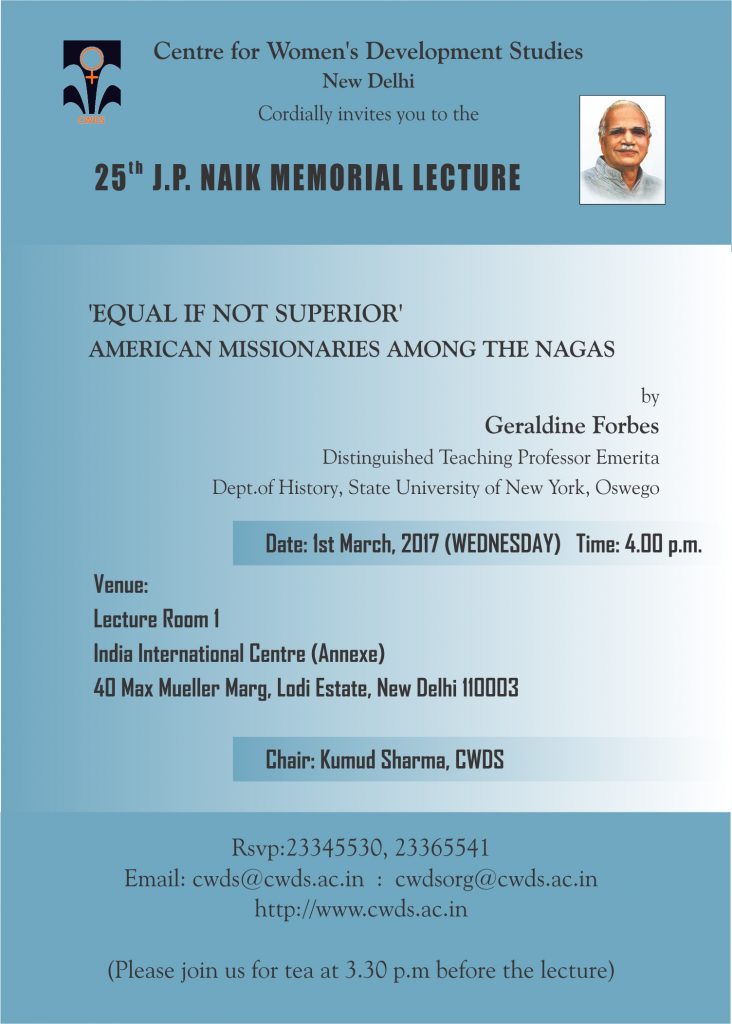
Geraldine Forbes is Distinguished Teaching Professor Emerita in the Department of History and the program in Women’s and Gender Studies at SUNY Oswego. Her first book, Positivism in Bengal (1976) was selected for the Rabindra Puraskar. A pioneer in researching and writing women’s history in Colonial India, her publications include: Shudha Mazumdar, Memoirs of an Indian Woman (1989), Manmohini Zutshi Sahgal, An Indian Freedom Fighter Recalls Her Life (1994), Women in Modern India (1996) for the New Cambridge History of India, Women in Colonial India (2005), and “Because I am a Woman”: Child Widow: A Memoir from Colonial India (2010) and several articles.
The Lecture will focus on the early years of the American Baptist Mission in the Naga Hills to examine the interactions between the missionaries and the people they tried to convert. Historians have sought to explain why the Christian missionaries were most successful in North East India, which now includes the only Christian-majority states in India: Nagaland, Mizoram, and Meghalaya. Explanations of missionary success have focused on the support of colonial authorities, the vulnerability of tribal populations in a period of change, the politics of translation, and the ways in which Christian cosmology resonated with the religious cosmologies of the targeted people. These accounts credit missionaries with success in conversion, ignoring the agency of the people they worked amongst. While military men reported on violent resistance to colonial rule, missionaries used the trope of the warring savage to represent themselves as ‘manly men’ conquering fierce heathens for Christ. In their official characterization of the encounter, missionaries ignored the non-violent resistance of Naga men over the interpretation of Christianity, the responses of Naga women, and their unpaid, unrecognised work.